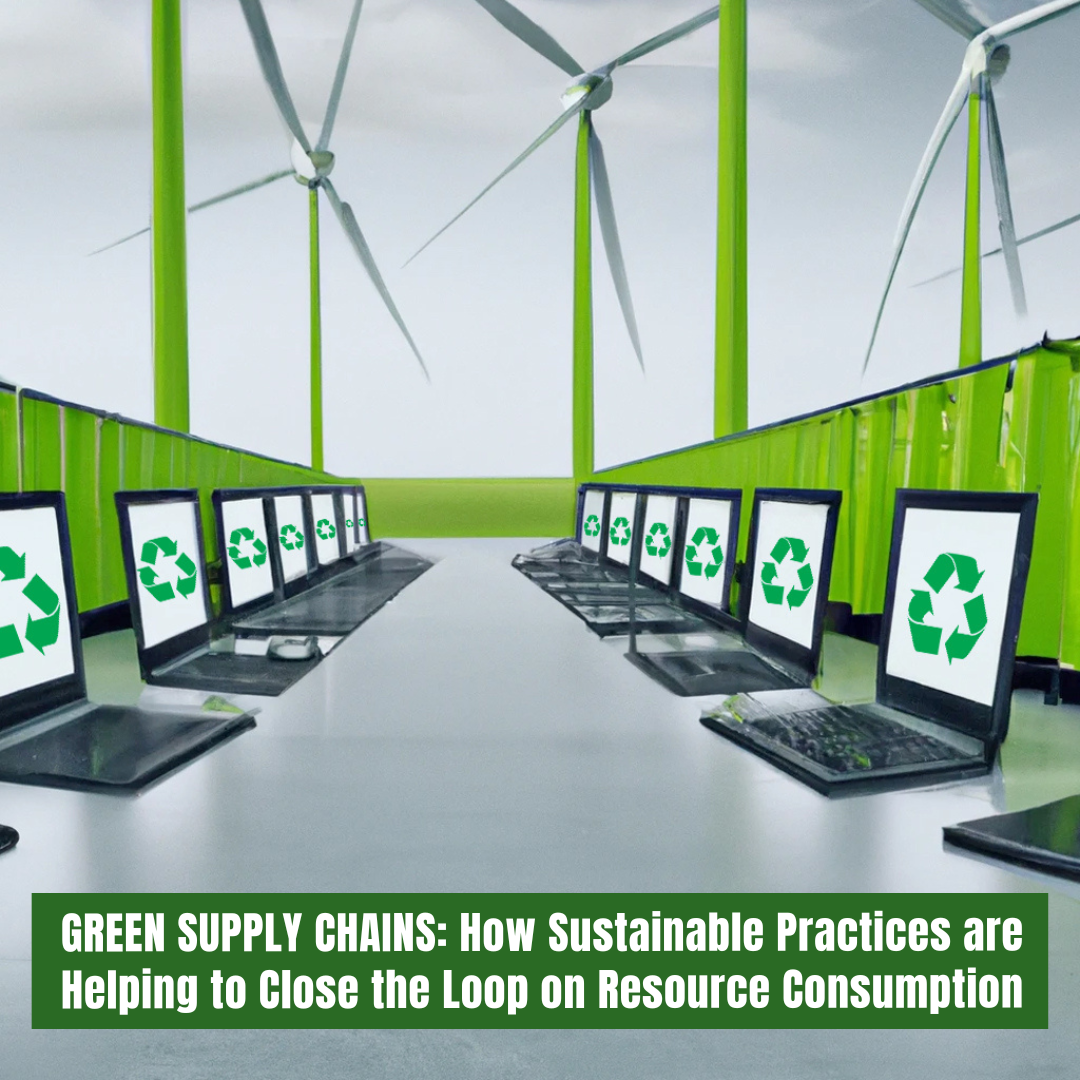Green Supply Chains: How Sustainable Practices are Helping to Close the Loop on Resource Consumption
As our reliance on new electronic devices continues to grow, so too has the amount of old technology that we throw away. Electronic waste, or e-waste, refers to any discarded electronic device, such as cell phones, laptops and TVs. According to a World Economic Forum (WEF) Report, e-waste is the fastest-growing waste stream globally, and shows no sign of slowing.
E-waste poses a significant threat to the environment, as it often contains hazardous materials that can leach into the soil and water if not properly disposed of, such as lead, mercury, cadmium, chromium, brominated flame retardants (BFRs), polyvinyl chloride (PVC) and polychlorinated biphenyls (PCBs). What is more, valuable resources in e-waste often go unused due to improper disposal.

The Solution: Green Supply Chains
Businesses can fight this trend by becoming part of a green supply chain, and consumers can do their part by supporting them. Green supply chains are simply supply chains that prioritize environmental sustainability. Participating organizations prioritize reducing waste, minimizing energy consumption and using eco-friendly materials.
Electronic recycling helps to close the loop on resource consumption and is an essential aspect of the green supply chain. Your old office equipment contains a wide variety of finite materials with diverse applications. These materials can be extracted and reused in the manufacturing of next generation technology — reducing the need for newly harvested metals, plastics and glass as well as the environmental hazards associated with mining them.
Grow Your Business While Protecting the Planet
Consumers are becoming increasingly aware of the environmental impact of electronic devices and are more likely to support your company if you prioritize sustainable practices. For example, a report by Cone Communications found that 84% of consumers globally seek out responsible products whenever possible. By implementing sustainable e-waste practices, you can improve your business’ reputation and increase overall brand value.
Moving toward a green supply chain with sustainable electronics recycling also helps to stimulate job growth and local economies. Because the process of recycling electronic devices requires specialized knowledge and equipment, it stokes demand for a skilled workforce. Recycling facilities can also create new markets for recovered materials, providing economic incentives for businesses to invest in sustainable practices. The global value of desirable metals in one year’s e-waste was estimated to be approximately $53 billion (€ 48 billion) in a publication from The United Nations University.
Get Started
Despite the benefits of electronic recycling, many electronic devices still end up in landfills. In fact, only 17.4% of the world’s e-waste was documented as being recycled properly, according to a report by UNITAR (United Nations Institute for Training and Research). We hope that promoting the benefits of electronic recycling will help motivate both the general public and businesses to take appropriate action with their broken, obsolete and otherwise unwanted technology.
While participating in community recycling programs and electronic take-back programs may be effective answer for consumers, businesses should consider taking a more deliberate approach. Partnering with an experienced electronic recycling company is the ideal solution for businesses and other organizations who want to protect the planet, as well as their bottom line.
At PC Survivors, we help organizations become part of the green supply chain with personalized electronics recycling solutions. When you have your old equipment processed by us, you can breathe easy knowing your materials are being handled with sustainability, security and compliance in mind. Our techniques meet or exceed the guidelines set forth by HIPAA, Gramm Leach Bliley, GDPR and all other applicable forms of legislation. We are also proud members of NAID (The National Association for Information Destruction) and hold RIOS and R2v3 certificates for sustainable recycling.







